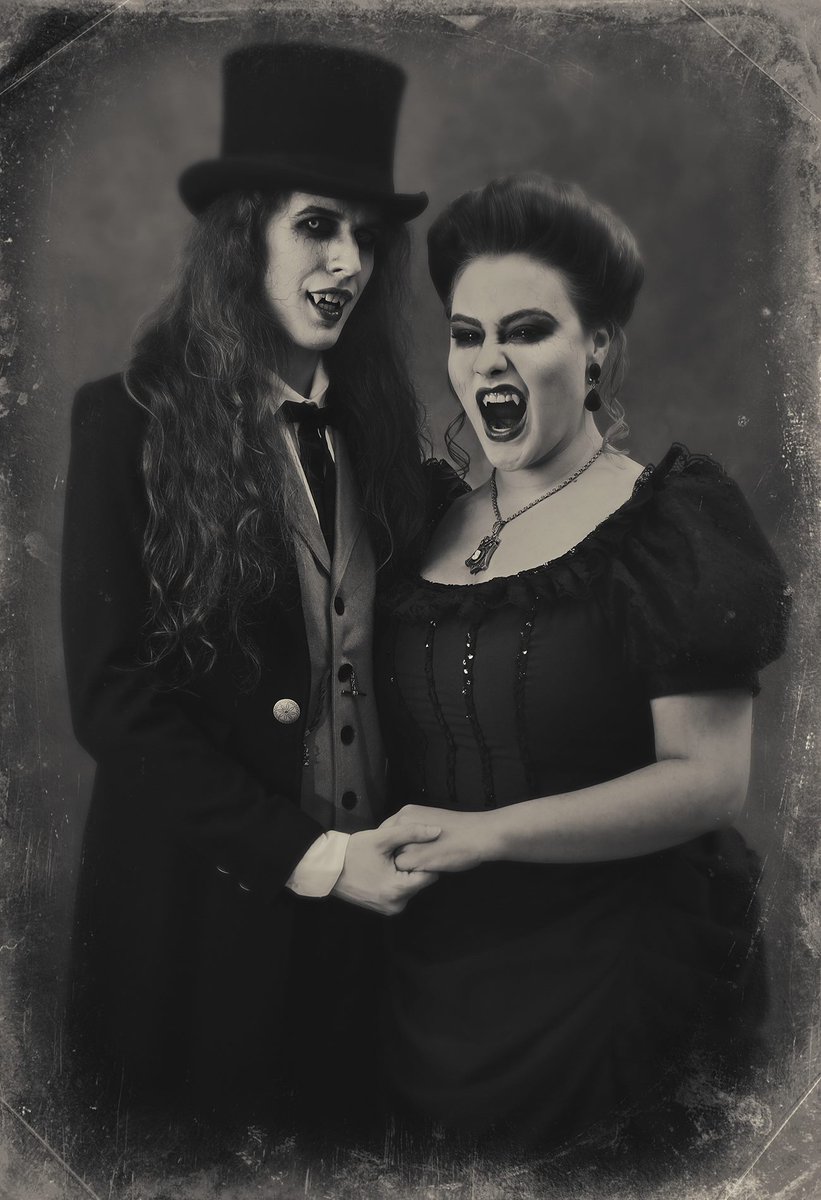
Hey everyone! For those of you just meeting me for the first time, allow me to introduce myself in more detail. My name is Courtney Lane (she/her), and I am a Victorian Hair Artist, Historian, and Professional Weirdo based in Kansas City, USA. 🧵 1/11 

My business is called Never Forgotten where I make bespoke works of art and jewelry out of hair! A majority of my work is done for sentimental purposes, and I can work with the hair of your beloved humans, horses, and even small animals.🧵 2/11 







Hairwork has been my full-time profession for over 6 years. In addition to making the art myself, I also teach workshops on a variety of hairwork techniques, and I offer lectures on the history of this nearly forgotten art form. neverforgottencl.com🧵 3/11
Online, you can find me delving into the history of hair art, mourning Victoriana, & occasionally other topics such as asexuality or disability on my YouTube channel "Hair and Now". I also offer bonus content, including video tutorials, on Patreon! youtube.com/hairandnow 🧵 4/11 

Some of my favorite work achievements include presenting at The Mutter Museum, having my work featured in Women's Health Magazine, appearing on the podcast Dressed: The History of Fashion produced by How Stuff Works, and in 2018 I was voted KC's Best Local Craft Artist 🧵 5/11 

I'm diagnosed with many things, including but not limited to Ehlers-Danlos Syndrome (EDS), Postural Orthostatic Tachycardia Syndrome (POTS), an unspecified Demyelinating Disease, & OCD. I'm a regular walking cane user & use a wheelchair during travel but don't own my own🧵 6/11 

I live with my spouse, Royce. We are both asexual, and Royce is agender and has lovingly taken to calling it "mehgender". Later this month, we will celebrate our 7 year anniversary! The only professional photos we've ever had taken of us were vampire portraits. 🧵 7/11 





We have several pets including 1 rat dog named Quiggley, 2 large Dumeril's Boas named Sen & Chihiro, 1 very grumpy opossum named Lenny, & an unknowable number of mice. Maybe 30 something? That's a long story, but we adore our mouse colony & no they're not snake food. 🧵 8/11 







I've always had a love for the performance arts. I grew up a voracious dancer, and although I'm not able to dance the way I used to, I still enjoy teaching dance and choreographing. I've also done quite a bit of acting & singing which are some of my favorite things to do 🧵 9/11 

I'm utterly obsessed with the Great Emu War, I have a 100+ year grudge against Sears, I one time gave a cockroach a heart attack & also pulled a sword on a couple of Mormans once. Both of the latter were accidents that I still feel bad about. Sorry cockroach & Mormons😭🧵 10/11
Any questions? I'm here all week, so feel free to AMA 😊 🧵 11/11
• • •
Missing some Tweet in this thread? You can try to
force a refresh



